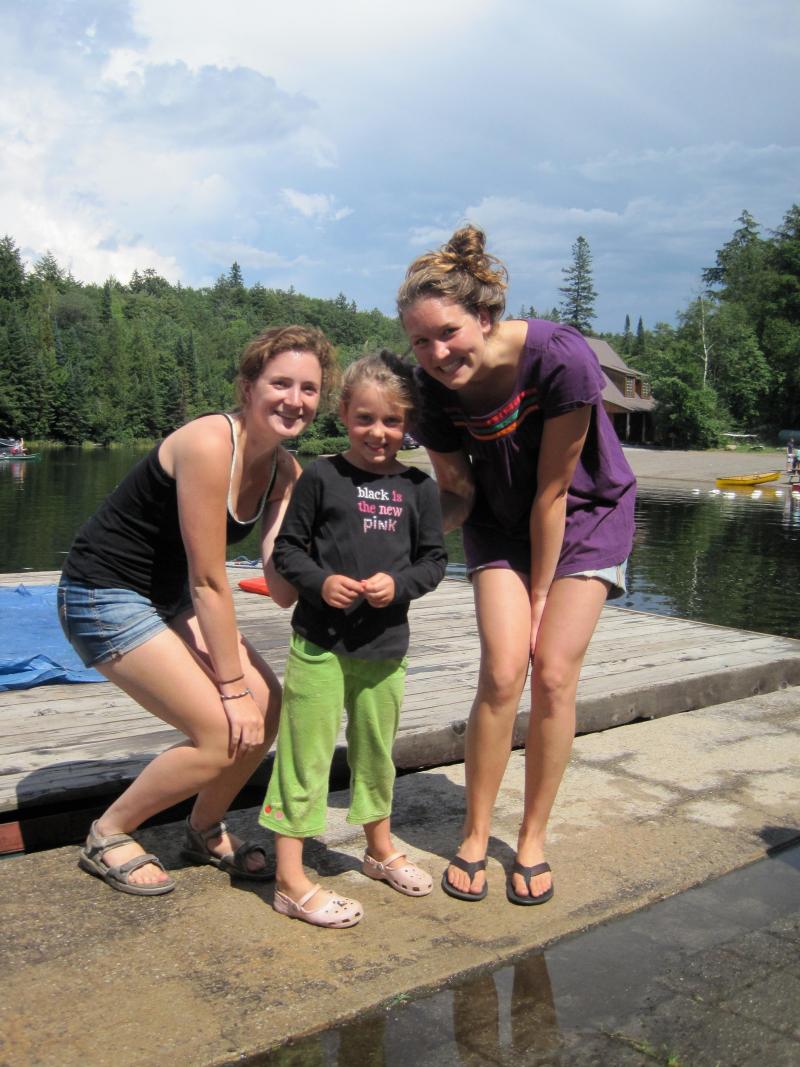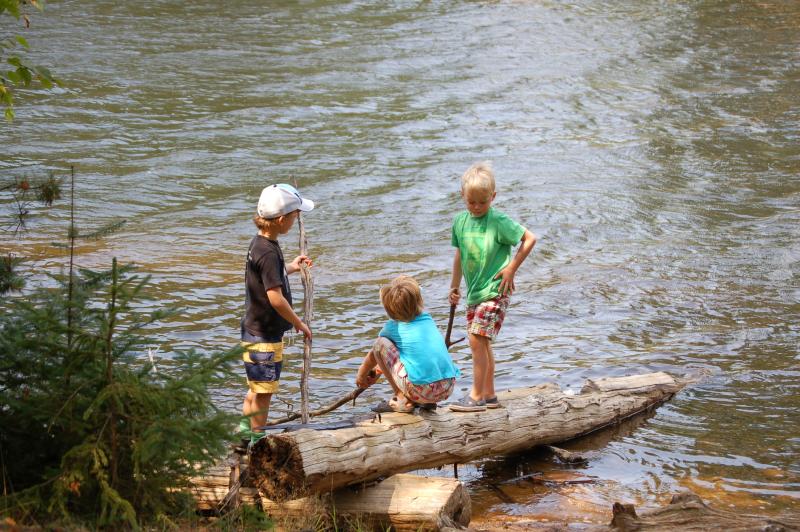
Homesickness played an annual role in my summer camp experience. I really wanted to like camp, but it was a bad fit. I went in my tween and early teen years, which were far from my peak. I was uncoordinated, lacking in muscle tone, and judging from photographic evidence, had skipped the chapter on “Making the Most of Your Features.” I did love camp food, boy watching, and the fashion, however. I always went back to my small town knowing what was in style for fall. Funny, a generous women’s Speedo never seemed to make the list.
My husband was the strong, capable camper/staff member I could only dream about after camp, listening to the Eagles on my Walkman. I refer to him in his camp photos as Blond Jesus. Therefore, when choosing a camp for our kids, I deferred to his former summer haven.
Our three currently attend The Taylor Statten Camps (TSC). Located in Algonquin Park, TSC features Camp Wapomeo for girls and Camp Ahmek for boys. The two camps are positioned one mile apart on beautiful Canoe Lake. Operating since the 1920s, these are Canada’s oldest brother-sister camps and have been run by the Statten family for generations. I have always found the staff to be incredible so I tracked down the directors for some tips on dealing with homesickness.

According to one, explaining to kids in advance that homesickness is normal and short-lived can greatly reduce its duration. Discuss strategies for dealing with sadness at camp like reading a book, talking with a counsellor, or cuddling a loved stuffed animal with your camper before they leave home. Planning will build your child's confidence in their ability to cope, seek support, and triumph.
Parents should remain strong on drop-off day. Lots of parents feel emotional when saying goodbye to their children, but displaying excitement for and confidence in your camper helps them to feel those same things.
Empathize, acknowledge but remind them that this is an amazing opportunity. Parents should always present camp as something that kids get to do instead of something they have to do.
They also suggest getting your children used to staying away from home for a few nights prior to coming to camp. Having camp be the first overnight experience away from parents can be overwhelming for kids.
All three directors believe in the power of positive mail! Parents should send letters and packages in advance so that they reach campers on time. One suggested sending a set of postcards to the camp office for distribution to your camper every other day.
There are a few ways that parents can exacerbate their camper’s potential for homesickness. Telling children they can come home if they are not enjoying camp can prove disastrous. Direct contact by phone can also result in increased sadness. Despite these warnings, communication is recognized as being very important. Ahmek’s director likes to use this strategy: “When working with homesick campers, I often will have them write letters home. I scan and send the letter via email to parents so that there can be an immediate response.”

According to one director, staff expect homesickness, plan for it, and know how to treat it.
Most campers fall in love with their counsellors very quickly. The counsellors are with the campers throughout the day and work hard to get them involved with our many awesome in-camp activities. The bond between the cabin group develops quickly. Being a part of a team that eats, sleeps and plays together all day helps campers to belong, feel supported and comfortable.
There's value in sticking to a solid evening routine. Knowing what to expect is comforting to kids. Brushing teeth together, followed by pajamas and a story helps to wind the day down. Camper bedtime can invite loneliness, so a bedtime story can help. Asking counsellors to sit in a different spot each night gives each camper a chance to feel close and included during story time. Sharing best and worst moments of the day is another way staff can stay in tune with camper emotions. Early morning sadness was addressed at Wapomeo by devising a meeting place with staff and games waiting for lonely, early risers.
Despite all the best planning, sometimes overwhelming homesickness can occur. But these camp directors want parents to remember that one tough summer does not mean that the camp experience needs to be over. She fondly remembers one camper who cried every night but returned the next summer, and later became an excellent staff member.